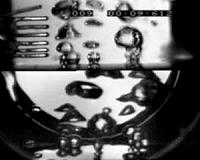 |
Washington (AFP) March 1, 2011 A plan for Russia's Soyuz capsule to fly around the International Space Station and take pictures of the US shuttle Discovery and other global spacecraft was deemed too risky, NASA said Tuesday. "It was kind of a late proposal that we do this," largely because the US shuttle was delayed from its initial November launch plan due to technical problems, said NASA spokesman John Ira Petty. "The Soyuz that is attached to the station that would have been used is a new type of Soyuz and they (the Russians) were reluctant to add this extra activity," said Petty. "The risk of failure would have seen three new crew members going home earlier than scheduled," he said, adding that NASA understood and backed the Russians' decision. Meanwhile, NASA decided to extend the shuttle's mission to the ISS by one day, with a return to Earth now set for March 8, and astronauts completed the installation of the Permanent Multipurpose Module on the underside of the lab. "The extension day will be devoted to emptying the Permanent Multipurpose Module and moving supplies between Discovery and station," NASA said in a message on the microblogging site Twitter. A first spacewalk to install preparations for the storage module was completed Monday. The shuttle blasted off from Kennedy Space Center on February 24, on its final mission into orbit before entering retirement. Discovery is the first of three US shuttles set to become museum pieces later this year. Endeavour is to lift off on April 19 followed by Atlantis on June 28, marking the official end of the US space shuttle program after 30 years. The Discovery shuttle's mission now will last 12 days, with a second spacewalk planned for Wednesday.
Share This Article With Planet Earth
Related Links Station at NASA Station and More at Roscosmos S.P. Korolev RSC Energia Watch NASA TV via Space.TV Space Station News at Space-Travel.Com
 Boiling Bubbles Are Cool In Space
Boiling Bubbles Are Cool In SpaceGreenbelt MD (SPX) Mar 01, 2011 It may seem illogical, but boiling is a very efficient way to cool engineering components and systems used in the extreme environments of space. An experiment to gain a basic understanding of this phenomena launched to the International Space Station on space shuttle Discovery Feb. 24. The Nucleate Pool Boiling Experiment, or NPBX, is one of two experiments in the new Boiling eXperiment Fa ... read more |
|
| The content herein, unless otherwise known to be public domain, are Copyright 1995-2010 - SpaceDaily. AFP and UPI Wire Stories are copyright Agence France-Presse and United Press International. ESA Portal Reports are copyright European Space Agency. All NASA sourced material is public domain. Additional copyrights may apply in whole or part to other bona fide parties. Advertising does not imply endorsement,agreement or approval of any opinions, statements or information provided by SpaceDaily on any Web page published or hosted by SpaceDaily. Privacy Statement |